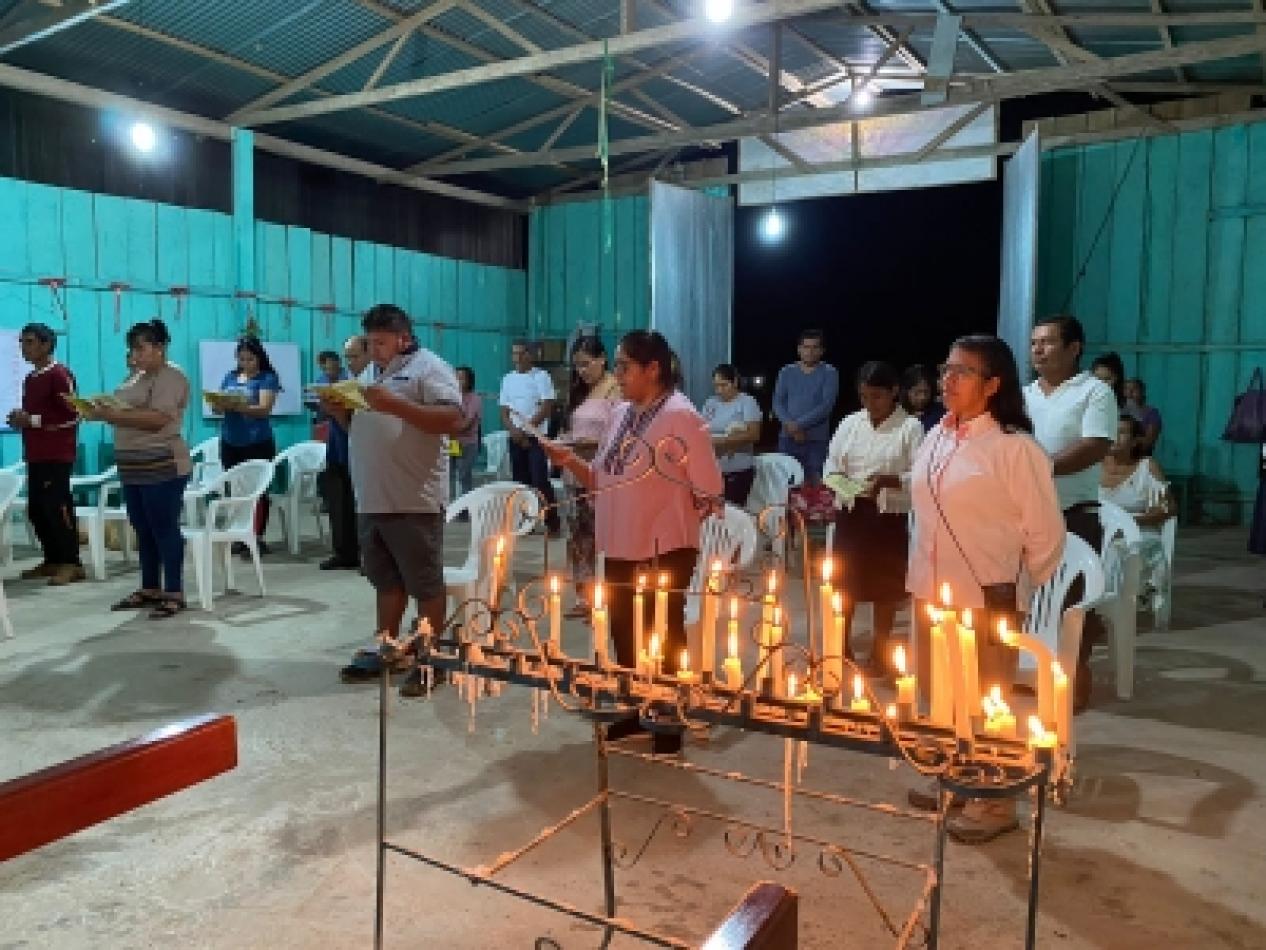Daniel Comboni
Comboni Missionaries
Institutional area
Other links
Newsletter
Saturday, March 12, 2022
Sadly, many times religions have not only contributed to solidarity, but have also caused mistrust and hostility. Unfortunately, even the Catholic Church has sometimes been violent and has been involved in many crusades. St. Francis of Assisi had understood that the style of the crusade was not the wish of Jesus. Pope Bergoglio, also by choosing name Francis, is orienting us decisively towards the way of fraternity and collaboration of religions for the service and salvation of the world.
Pope Francis is a son of the Second Vatican Council. One of the most remarkable fruits of the Second Vatican Council was the rediscovery of the Holy Spirit, whose transformative action has existed since the beginning of the cosmos, since the so-called Big Bang, as the One who sets in motion virtuous mechanisms, Creation, evolution, of which the successive transformations are a constant.
This rediscovery of the action of the Holy Spirit marks a radical transformation in Missiology. Until the time of my theological studies, prior to Vatican II, there was an emphasis on viewing other religions as false. That was when the concept and practice of mission was dominated by Christology.
What does the rediscovery of the Holy Spirit mean? That the Trinitarian dimension is emphasised. The truth is that mission finds its root in Trinitarian love that leads to dialogue and communion and that the Holy Spirit precedes the missionaries.
The declaration Nostra Aetate, which was the last of the Vatican Council (28/10/1965) became a watershed and thus ushered in a new era for mission. From then on, the Catholic Church’s relationship with different religions is based on faith in the active presence of the Holy Spirit in all of them, and thus on deep respect and an attitude of openness to dialogue. Nostra Aetate was key to understanding the Catholic Church’s dialogue with other religious traditions. In truth, this document was born precisely as the fruit of the action of the Holy Spirit, starting from God’s plan of salvation and the sole purpose of human history.
At the origin of dialogue between religions, therefore, is both God’s will to save all and the ultimate goal of history. Dialogue arises as a duty to promote unity and universal fraternity and sorority (Nostra Aetate 1 and 5).
The Catholic Church rejects nothing of what is true and holy in all other religions, including primal religion. She regards with sincere respect those ways of acting and living, those precepts and doctrines which, although they differ in many respects from what she herself believes and proposes, nevertheless not infrequently reflect a ray of that truth which enlightens all human beings. The action of the grace of Christ and the Holy Spirit is recognized in every religious tradition, as well as in every human being who acts according to conscience and seeks the good (Nostra Aetate 2).
The Catholic Church looks with esteem on Muslims who worship the one, living, merciful, omnipotent God, creator of heaven and earth, who has spoken to humankind. They seek to submit themselves wholeheartedly to God’s decrees, as did Abraham, to whom the Islamic faith gladly refers. Although they do not recognise Jesus as God, they nevertheless venerate him as a prophet; they honour his virgin mother Mary, and invoke her with devotion. They also look forward to the day of judgement, when God will reward all resurrected men. They also esteem the moral life and worship God, especially through prayer, almsgiving and fasting (Nostra Aetate 3).
In Nostra Aetate 4, it is made clear that the Jewish religion emphasises that the Church and the very mission of Jesus and the apostles are rooted in the Jewish tradition, beginning with the covenant with Abraham and Moses.Lumen Gentium16, invites biblical and theological studies in a fraternal dialogue with the Jews.
Nostra Aetate contains a magnificent reflection on universal fraternity and sorority: we cannot invoke God as the Father of all, men and women, if we refuse to behave as brothers and sisters towards some or some, who are created in the image of God. The Church abhors, as contrary to the will of Christ, any discrimination of men, women or peoples, and any persecution on the grounds of race, colour, social status or religion (Nostra Aetate 5).
The reflection on the relationship between religions is very rich in the social teaching of the Church. In Dignitatis Humanae, for example, it declares for the first time that among human rights, there is also that of religious freedom. While Gaudium et Spes emphasises and deepens various aspects of religious freedom.
Universal siblinghood and the working communion of all religions and all people of good will, as Pope Francis now states, is the only possible future of humanity. The new approach of Fratelli Tutti implies that we must not ignore that all religions have made a positive contribution in history (albeit with shortcomings), have kept peoples together, have guided them to a relationship with God, have enlightened coexistence by articulating a moral, social, political life. And that the time has come for us to adopt “culture of dialogue as the path; mutual cooperation as the code of conduct; reciprocal understanding as the method and standard” (FT 285).
Fr. Francesco Pierli mccj
[combonimission.net]




